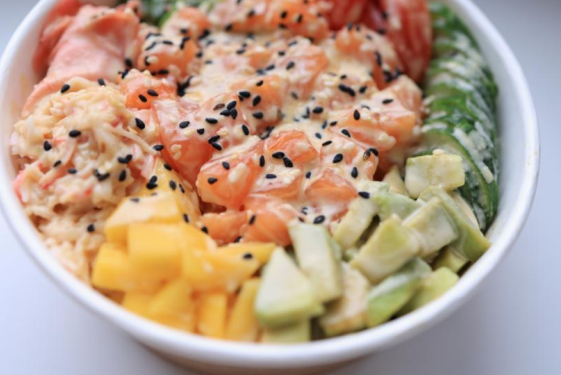The Health Benefits of a Traditional Hawaiian Diet

Nearly a quarter of Hawai’i’s population is multiracial. This is reflected in modern Hawai’ian cuisine, which has become a melting pot of various cultures that bring together mainland American, Chinese, Filipino, Japanese, and Korean flavors and dishes to the small island state. Whether you’re a tourist or a local, you’ve probably already encountered plenty of guides to local cuisine that explain all the multiculturally-influenced dishes that Hawai’i has to offer. There’s the savory loco moco, a hamburger patty on a bed of rice topped off with an over-easy fried egg. A “plate lunch” can be found on the menu of almost any casual restaurant on the island, typically featuring rice, macaroni salad, and a meat of your choice. And who could forget about the Japanese-inspired Spam musubi or Filipino-inspired shave ice?
You’d be hard-pressed to find a Hawai’ian dish that isn’t delicious, but for the health-conscious, it may be a challenge to find modern fare that hits your nutrition targets. Some meals could be packed with sodium or processed sugar, making it challenging to consume a balanced diet. In fact, one-third of hospitalized Hawai’i youth are obese. Lifestyle and socioeconomic factors already place native Hawai’ians at higher risk for type 2 diabetes and cardiovascular disease. Still, it has also been found that Polynesian genetic ancestry is linked with a higher chance of obesity. This makes it all the more important to find healthier alternatives.
Overweight versus obesity
Diet plays a massive role in health outcomes, including weight. We often hear the terms “overweight” and “obese” used interchangeably to reference weight. If you’re embarking on a health journey, it’s important to note that there is a difference between overweight vs obesity. These terms sit next to each other on the Body Mass Index (BMI), with the former defined as a BMI of 25-29.9 and the latter defined as a BMI of 30 and above. Some health risks are already associated with being overweight, which can become exacerbated with increased weight gain and eventual obesity. That said, more and more health experts are veering away from BMI as a holistic depiction of health because it does not consider muscle mass and other factors that can influence weight-to-height proportions. But it’s a good rule of thumb to stay within a normal health range, and you can achieve this by making a few tweaks to your lifestyle.
Traditional, healthier fare
To lose weight, you don’t have to give up Hawai’ian cuisine. It’s just a matter of looking back at traditional Hawaiian food, which is more plant-based. Fresh poi, made from the underground plant stem of the taro plant, is packed with vitamins, digestive enzymes, and carbohydrates. It’s so healthy that it’s even given to infants as a milk substitute. You can also take a cue from Hawai’i’s pre-Westernized diet, which featured a lot of fruits, like sweet potato, yams, and bananas. Ancient Hawai’ians consumed fish, squid, and chicken instead of red meat. Some might associate a protein-lacking diet with reduced strength, but a study found that when Native Hawai’ian lua members returned to the traditional diet pattern of their warrior ancestors, they enjoyed increased muscle strength, stamina, and flexibility. There’s no need to say goodbye to modern Hawai’ian fare either — you can throw together a delicious poke bowl with some white rice, raw fish, shoyu, green onions, and spices.
Making realistic changes
Aside from your eating habits, integrating exercises can be as simple as taking a 15-minute walk daily and making workouts more challenging over time. Getting sufficient sleep is also essential for staying fit and healthy. Of course, the best person to speak with about lifestyle changes for weight management would be your doctor or nutritionist. The key to a healthy but sustainable diet is making sensible changes without depriving yourself of your favorite dishes or compromising on taste. Luckily, traditional Hawaiian cuisine is packed with both nutrients and delicious flavors. For lovers of Hawai’ian food, better health might be achieved by returning to the island’s humble, plant-based roots.